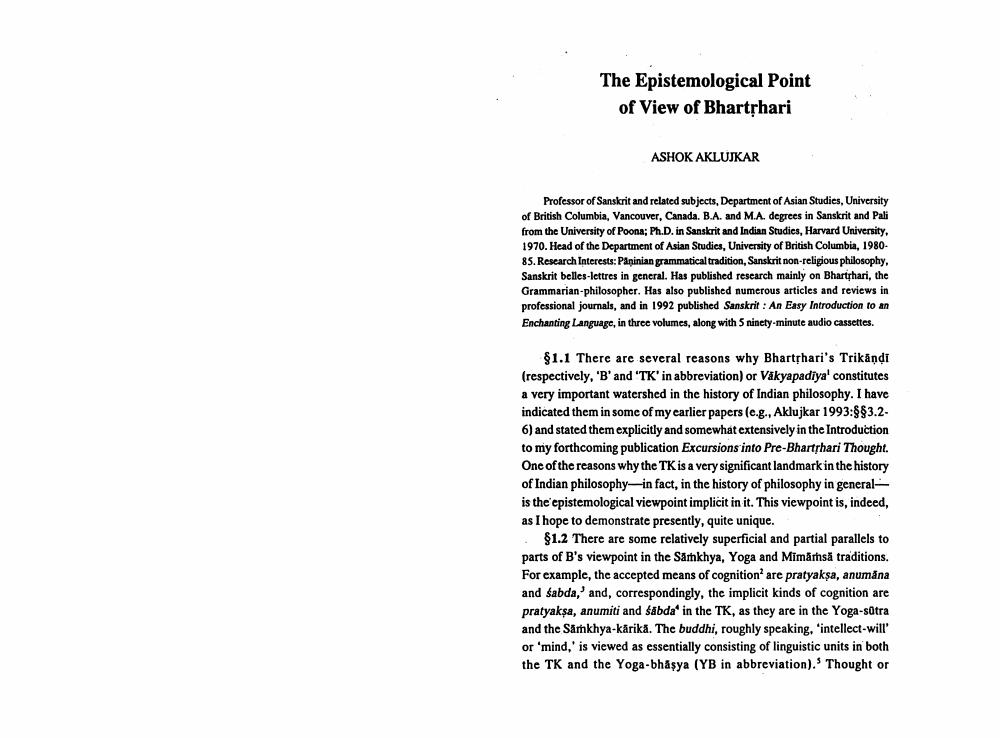Book Title: Epistemological Point Of View Of Bhartrhari Author(s): Ashok Aklujkar Publisher: Ashok Aklujkar View full book textPage 1
________________ The Epistemological Point of View of Bharthari ASHOK AKLUJKAR Professor of Sanskrit and related subjects, Department of Asian Studies, University of British Columbia, Vancouver, Canada. B.A. and M.A. degrees in Sanskrit and Pali from the University of Poona; Ph.D. in Sanskrit and Indian Studies, Harvard University, 1970. Head of the Department of Asian Studies, University of British Columbia, 198085. Research Interests: Paninian grammatical tradition, Sanskrit non-religious philosophy, Sanskrit belles lettres in general. Has published research mainly on Bharthari, the Grammarian-philosopher. Has also published numerous articles and reviews in professional journals, and in 1992 published Sanskrit: An Easy Introduction to an Enchanting Language in three volumes, along with 5 ninety-minute audio cassettes. $1.1 There are several reasons why Bharthari's Trikāndi (respectively, 'B' and 'TK' in abbreviation) or Vakyapadiya' constitutes a very important watershed in the history of Indian philosophy. I have indicated them in some of my earlier papers (e.g., Aklujkar 1993:$$3.26) and stated them explicitly and somewhat extensively in the Introduction to my forthcoming publication Excursions into Pre-Bharthari Thought. One of the reasons why the TK is a very significant landmark in the history of Indian philosophy—in fact, in the history of philosophy in general is the epistemological viewpoint implicit in it. This viewpoint is, indeed, as I hope to demonstrate presently, quite unique $1.2 There are some relatively superficial and partial parallels to parts of B's viewpoint in the Samkhya, Yoga and Mimarnsă traditions. For example, the accepted means of cognition are pratyaksa, anumana and Sabda," and, correspondingly, the implicit kinds of cognition are pratyaksa, anumiti and sabda in the TK, as they are in the Yoga-stra and the Samkhya-kärika. The buddhi, roughly speaking, intellect-will or 'mind,' is viewed as essentially consisting of linguistic units in both the TK and the Yoga-bháşya (YB in abbreviation). Thought orPage Navigation
1 2 3 4 5 6 7 8 9 10
